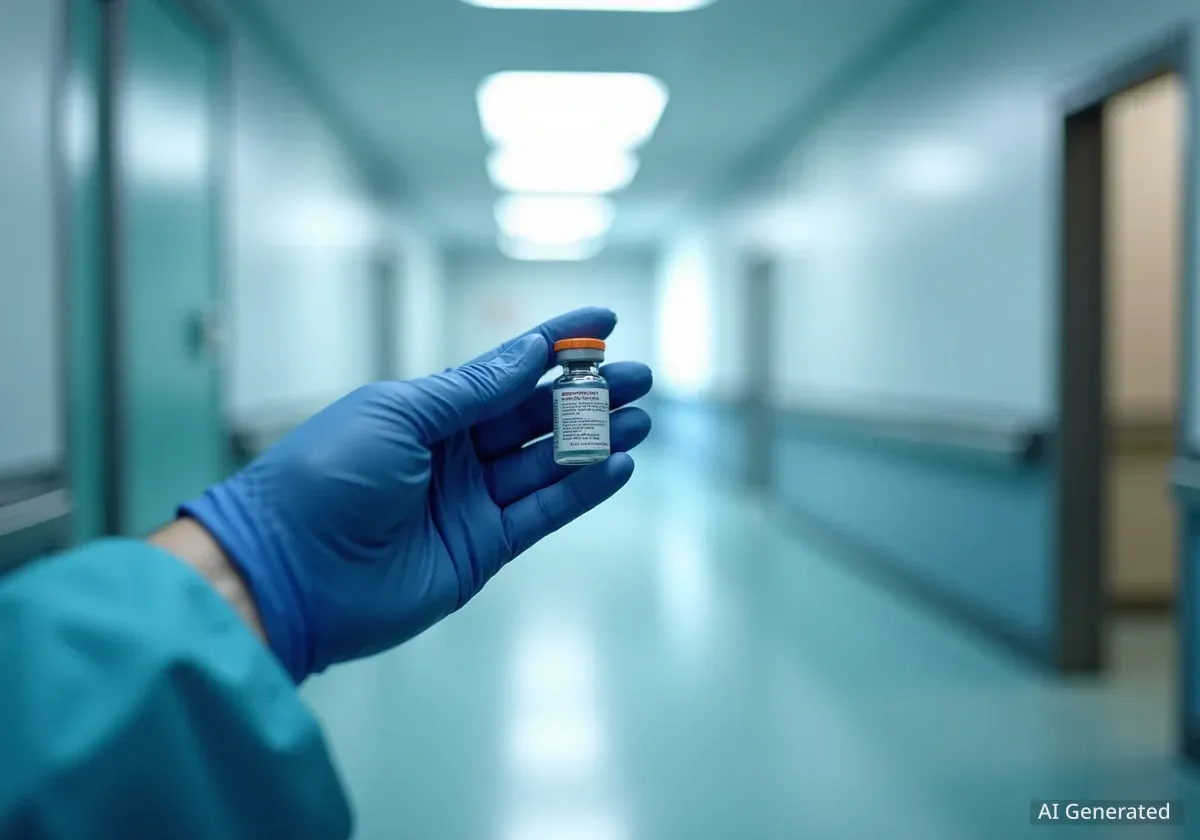Liverpool-based laboratory testing company BioGrad has announced plans to develop a new Centre of Bio-Manufacturing Excellence in the city region. Construction is scheduled to begin before the end of the year, with the facility aiming to establish the North of England as a key hub for advanced cell and gene therapies.
Key Takeaways
- BioGrad will build a Centre of Bio-Manufacturing Excellence in the Liverpool City Region, with work starting by the end of 2025.
- The facility will focus on advanced cell and gene therapies, including CAR T-cell treatments for cancer.
- It aims to create high-value jobs and attract international investment, contributing to a regional plan to generate 8,000 jobs over 10 years.
- The project seeks to address the historical disparity in life science investment between the North and South of England.
- A collaborative workshop with key regional stakeholders has endorsed the project, strengthening the business case for the centre.
New Facility to Drive Life Science Growth
BioGrad, a specialist in laboratory testing, has confirmed its commitment to building a modern, GMP-compliant facility in Liverpool. The development is a significant step towards positioning the region as a leader in the rapidly growing field of bio-manufacturing.
The primary goal of the Centre of Bio-Manufacturing Excellence is to accelerate research and development in cutting-edge medical treatments. This includes advanced cell and gene therapies, such as CAR T-cell therapy, which modifies a patient's own immune cells to fight cancer.
By establishing this hub, BioGrad intends to create a range of employment opportunities, from entry-level technical roles to highly skilled professional positions. The project aligns with the Liverpool City Region's broader economic strategy for the health and life sciences sector.
What is GMP Compliance?
GMP stands for Good Manufacturing Practice. A GMP-compliant facility adheres to strict regulations enforced by agencies that control the authorization and licensing of pharmaceutical products. This ensures that treatments are consistently produced and controlled according to quality standards, which is essential for patient safety.
Addressing Regional Investment Imbalance
A key motivation behind the new centre is to tackle the long-standing disparity in life science funding between different parts of the country. This initiative aims to channel significant new investment into the North, strengthening its innovation ecosystem.
According to The Institute for Public Policy Research, the North of England has historically received less than half the life science investment allocated to the South. This has created challenges for regional growth and access to the latest medical technologies.
Economic Ambitions
The project will directly support the Liverpool City Region’s health and life sciences Growth Plan. This 10-year strategy aims to create 8,000 new jobs and attract new bio-manufacturing businesses and investors to the area, significantly boosting the North of England's bioeconomy.
The Centre of Bio-Manufacturing Excellence is designed to act as a catalyst for the local bioeconomy. It is expected to attract new businesses, foster industry clusters, and help build a sustainable skills pipeline to support the sector's long-term growth.
Collaborative Effort to Build a 'Superpower'
To ensure the project meets regional needs, BioGrad recently hosted a workshop at Dale House in Wavertree Technology Park. The event brought together influential figures from science, healthcare, business, and politics to discuss the centre's growth priorities.
Participants voiced strong support for establishing the city region as a bio-manufacturing 'superpower'. The discussion helped solidify the business case for the centre and secured a commitment from stakeholders to work collaboratively on its development.
"The Centre of Bio-Manufacturing Excellence development is under way now and is a landmark opportunity for Liverpool and the North of England. It will create high value jobs, attract new investment and ensure people here have access to advanced therapies."
The panel at the workshop included several prominent leaders:
- Dr Natalie Kenny, CEO of BioGrad
- Prof Janet Hemmingway, founding director of iiCON
- Dr Damian Kelly, vice president of innovation and technology development at Croda
- Dr Muhammad Saif, director of the BMT Programme at The Clatterbridge Cancer Centre
Dr Kenny emphasized the collaborative nature of the project. "Our workshop brought together leading scientists, clinicians, business leaders, and policymakers to set the priorities that will shape the centre’s future and help establish Liverpool as a true bio-manufacturing superpower," she stated.
Improving Patient Access and Building on Success
One of the most significant impacts of the new centre will be on patient care. By developing advanced therapies locally, it will reduce the need for patients in the North to travel to the South of England or even overseas for specialized treatments.
This objective aligns with NHS priorities to expand and decentralize access to advanced therapies, making them more accessible to a wider population. Bringing these life-saving treatments closer to home is a core mission of the facility.
The initiative also builds upon the success of BRITE, a cross-sector partnership funded by Research England. BRITE has been instrumental in expanding facilities, investment, and skills to secure the Liverpool City Region’s position in the UK's cell therapy sector. The new centre represents a major expansion of this foundational work.
The project is being developed in collaboration with the Sameer Group, which is represented in the UK by EGP UK. With construction set to start this year, the centre is on track to become a cornerstone of the region's health and life sciences landscape.





